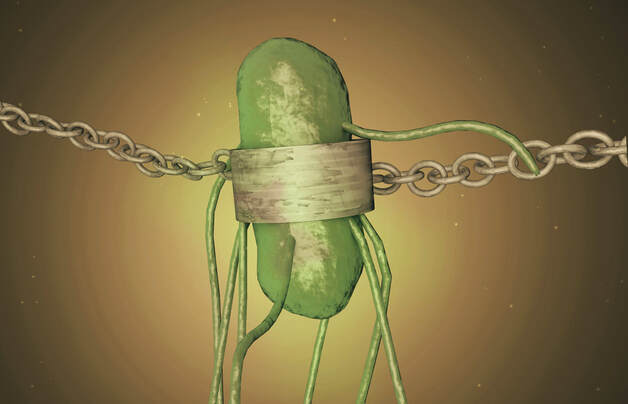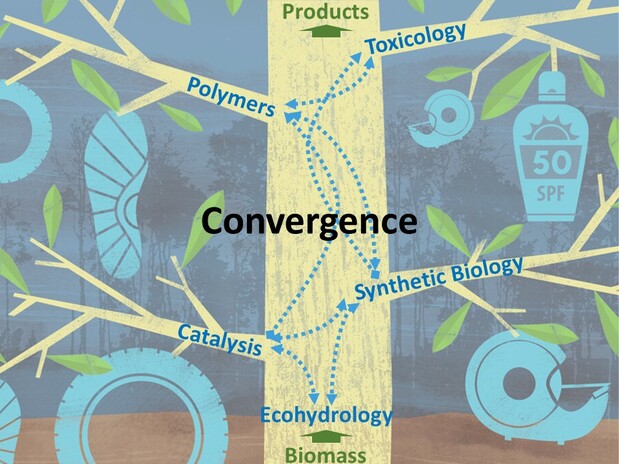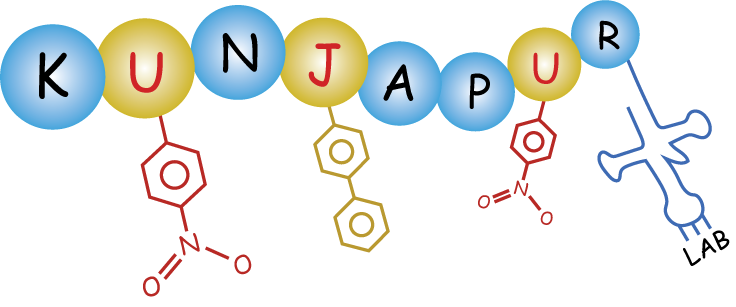Teaching cells to create and harness non-standard amino acids
Proteins are incredible polymeric nano-machines and the molecular workhorses of cells. Despite their diversity of structure and function, their abilities are limited by the chemistry of the twenty standard amino acids used for protein synthesis. In my group, we program cells to create and utilize amino acids that can respond to a variety of stimuli, initiate various processes, and form chemical bonds with biologically orthogonal functional groups. By doing so, we endow living cells with the ability to autonomously access an expanded repertoire of protein biochemistry, which should be especially useful when creating live bacterial vaccines and therapeutics as well as for environmental applications.
Relevant papers:
Discovery of L-threonine transaldolases for enhanced biosynthesis of beta hydroxylated amino acids
A platform for distributed production of synthetic nitrated proteins in live bacteria
(Review) Advances in engineering microbial biosynthesis of aromatic compounds and related compounds
Relevant papers:
Discovery of L-threonine transaldolases for enhanced biosynthesis of beta hydroxylated amino acids
A platform for distributed production of synthetic nitrated proteins in live bacteria
(Review) Advances in engineering microbial biosynthesis of aromatic compounds and related compounds
Advancing safeguards that control proliferation of engineered microbes
Living cells are capable of targeting regions of the body or influencing other organisms in the environment in unique ways. Synthetic biologists have created many tools to make engineered organisms more powerful and more useful in settings outside of traditional reactors, such as when administered to patients or released in the environment. To responsibly harness these new opportunities for engineered microbes, we need to better develop and characterize techniques for intrinsic biocontainment. We are especially interested in synthetic auxotrophy, where an organism is engineered to depend on a synthetic nutrient for growth.
Relevant papers:
Synthetic auxotrophy remains stable after continuous evolution and in coculture with mammalian cells
(Review) Deployment of engineered microbes: Contributions to the bioeconomy and considerations for biosecurity
Designing efficient genetic code expansion in Bacillus subtilis to gain biological insights
Engineering posttranslational proofreading to discriminate nonstandard amino acids
Relevant papers:
Synthetic auxotrophy remains stable after continuous evolution and in coculture with mammalian cells
(Review) Deployment of engineered microbes: Contributions to the bioeconomy and considerations for biosecurity
Designing efficient genetic code expansion in Bacillus subtilis to gain biological insights
Engineering posttranslational proofreading to discriminate nonstandard amino acids
Upgrading waste deconstruction products for polymer synthesis
The bulk of materials that we use in our daily lives are currently sourced from petroleum. Meanwhile, the majority of plastic that we use ends up in landfills, and the lignin that is leftover from products in forestry or agriculture is burned. These carbon-rich materials that are often discarded as waste can be broken down, but research is needed to identify efficient routes and end uses that justify the processing cost. At Delaware, we participate in two interdisciplinary projects where we collaborate with prominent researchers in catalysis and polymer science to create higher value materials from biomass and plastic wastes, starting with lignin and polyethylene terephthalate. We harness biocatalysis for selective introduction of chemical functional groups that add valuable properties to the resulting materials.
Relevant papers:
Reductive enzyme cascades for valorization of polyethylene terephthalate deconstruction products
Combinatorial gene inactivation of aldehyde dehydrogenases mitigates aldehyde oxidation catalyzed by E. coli resting cells
Genome engineering allows selective conversions of terephthalaldehyde to multiple valorized products in bacterial cells
Reductive amination cascades in cell-free and resting whole cell formats for valorization of lignin deconstruction products
(Review) Innovations toward the valorization of plastic waste
Relevant papers:
Reductive enzyme cascades for valorization of polyethylene terephthalate deconstruction products
Combinatorial gene inactivation of aldehyde dehydrogenases mitigates aldehyde oxidation catalyzed by E. coli resting cells
Genome engineering allows selective conversions of terephthalaldehyde to multiple valorized products in bacterial cells
Reductive amination cascades in cell-free and resting whole cell formats for valorization of lignin deconstruction products
(Review) Innovations toward the valorization of plastic waste




